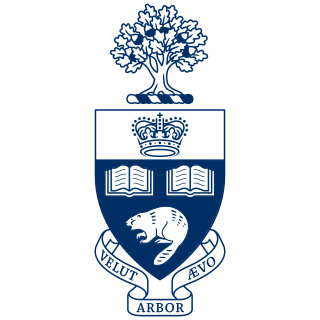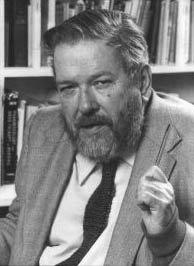
Harold Adams Innis was a Canadian professor of political economy at the University of Toronto and the author of seminal works on media, communication theory, and Canadian economic history. Despite his dense and difficult prose, Innis was one of Canada's most original thinkers. He helped develop the staples thesis, which holds that Canada's culture, political history, and economy have been decisively influenced by the exploitation and export of a series of "staples" such as fur, fishing, lumber, wheat, mined metals, and coal. The staple thesis dominated economic history in Canada 1930s-1960s, and continues to be a fundamental part of the Canadian political economy tradition.

Adolphus Egerton Ryerson (1803–1882) was a Canadian Methodist minister, educator, politician, and public education advocate in early Ontario. He was a prominent opponent of the closed oligarchy that ran the province, calling it the Family Compact, and is known for playing a key role in the design of the Canadian Indian residential school system.

Mark Gerald Kingwell, M.Litt, M.Phil, PhD, DFA, FRSC is a Canadian professor of philosophy and associate chair at the University of Toronto's Department of Philosophy. Kingwell is a fellow of Trinity College. He specialises in theories of politics and culture.

Modern philosophy is philosophy developed in the modern era and associated with modernity. It is not a specific doctrine or school, although there are certain assumptions common to much of it, which helps to distinguish it from earlier philosophy.
Gregory Vlastos was a scholar of ancient philosophy, and author of several works on Plato and Socrates. A Christian, Vlastos also wrote about Christian faith. He is considered to be "a preeminent scholar on Socrates who transformed the analysis of classical philosophy."
Jay Newman was a philosopher and Professor at the University of Guelph in Guelph, Ontario.

Eric Alfred Havelock was a British classicist who spent most of his life in Canada and the United States. He was a professor at the University of Toronto and was active in the Canadian socialist movement during the 1930s. In the 1960s and 1970s, he served as chair of the classics departments at both Harvard and Yale. Although he was trained in the turn-of-the-20th-century Oxbridge tradition of classical studies, which saw Greek intellectual history as an unbroken chain of related ideas, Havelock broke radically with his own teachers and proposed an entirely new model for understanding the classical world, based on a sharp division between literature of the 6th and 5th centuries BC on the one hand, and that of the 4th on the other.

Empire and Communications is a book published in 1950 by University of Toronto professor Harold Innis. It is based on six lectures Innis delivered at Oxford University in 1948. The series, known as the Beit Lectures, was dedicated to exploring British imperial history. Innis, however, decided to undertake a sweeping historical survey of how communications media influence the rise and fall of empires. He traced the effects of media such as stone, clay, papyrus, parchment and paper from ancient to modern times.

Monopolies of knowledge arise when the ruling class maintains political power through control of key communications technologies. This theory suggests that monopolies of knowledge gradually suppress new ways of thinking. Entrenched hierarchies become increasingly rigid and out of touch with social realities. Challenges to elite power are often likely to arise on the margins of society. The arts, for example, are often seen as a means of escape from the sterility of conformist thought.

Sir George Robert Parkin was a Canadian educator, imperialist, and author.
Harold Adams Innis was a professor of political economy at the University of Toronto and the author of seminal works on Canadian economic history and on media and communication theory. He helped develop the staples thesis, which holds that Canada's culture, political history and economy have been decisively influenced by the exploitation and export of a series of staples such as fur, fish, wood, wheat, mined metals and fossil fuels. Innis's communications writings explore the role of media in shaping the culture and development of civilizations. He argued, for example, that a balance between oral and written forms of communication contributed to the flourishing of Greek civilization in the 5th century BC. But he warned that Western civilization is now imperiled by powerful, advertising-driven media obsessed by "present-mindedness" and the "continuous, systematic, ruthless destruction of elements of permanence essential to cultural activity."
John Russon is a Canadian philosopher, working primarily in the tradition of Continental Philosophy. In 2006, he was named Presidential Distinguished Professor at the University of Guelph, and in 2011 he was the Shastri Indo-Canadian Institute's Canadian Lecturer to India.
Michael Beresford Foster (1903–1959) was a tutor in philosophy of Oxford University's Christ Church. For a period up until his death he was the chairman of the British Student Christian Movement. He was one of A. J. Ayer's tutors at Oxford, but their relationship is remembered more as a source of strained feelings than of scholarly fellowship. His disparate works on political science and various doctrines of Christianity have influenced philosophers such as George Grant, who had, when writing his doctoral thesis, in fact visited with Foster in England.
Commentaries on Plato refers to the great mass of literature produced, especially in the ancient and medieval world, to explain and clarify the works of Plato. Many Platonist philosophers in the centuries following Plato sought to clarify and summarise his thoughts, but it was during the Roman era, that the Neoplatonists, in particular, wrote many commentaries on individual dialogues of Plato, many of which survive to the present day.
The Toronto School is a school of thought in communication theory and literary criticism, the principles of which were developed chiefly by scholars at the University of Toronto. It is characterized by exploration of Ancient Greek literature and the theoretical view that communication systems create psychological and social states. The school originated from the works of Eric A. Havelock and Harold Innis in the 1930s, and grew to prominence with the contributions of Edmund Snow Carpenter, Northrop Frye and Marshall McLuhan.
James Alexander Doull (1918–2001) was a Canadian philosopher and academic who was born and lived most of his life in Nova Scotia. His father was the politician, jurist, and historian John Doull.

John Watson (1847–1939) was a Canadian philosopher and academic.
David Trick is a former Ontario civil servant and university administrator.
W. Stewart Wallace was a Canadian historian, librarian, and editor. His historical reference works were considered 'of inestimable value in Canadian studies'.
Political Ideologies and the Democratic Ideal. 3rd edition (2012)













